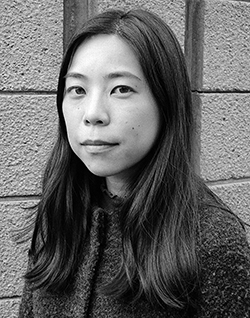|
"How wonderful that you've become an author," a family friend told me earlier this year. My agents had recently sold my first novel and story collection, and I was in the process (still am) of seeing myself as an author of books. I laughed, or shrugged, or shook my head, some gesture to indicate that it wasn't so wonderful, but thank you. It was, perhaps, the first time I heard somebody refer to me seriously in this way. Then the family friend, who works as an engineer, added, "To be an author, you must think you have something very important to write and share with the world." He did not say this with malice or hostility, but admiration. And yet the comment bothered me. I didn't know how to respond.
It felt untrue, or at least, inexact. He had suggested that a desire to be heard by others compelled the writing. But in writing my novel and stories, the audience had been farther from my thought process. And I was definitely not thinking, What I'm writing is very important for people to read and know!
This is not to say that I considered what I was doing unimportant. Or that I never thought about an audience and the possibility of a public realm for my work. I did quite a bit. The process of publishing one's writing takes effort, and the main goals seem, to me, to be 1) get paid for the work, 2) be read, and 3) publish further so that the cycle continues. To publish, after all, means to make public. Writing solely for yourself is completely legitimate, but if you do not care about others reading your writing, then keeping a private journal works just as well, and there are much easier ways to make a living.
Still, while I write, I tend to think about audience in both an abstract and pragmatic way. Will my ideal reader understand what I am trying to convey? Is this too private or haphazard or unfinished to share (i.e., does this need further edits)? Would this be interesting to anybody besides myself?
As for the importance of what I write, it's slightly more selfish than what this family friend believed. First and foremost, what I write must feel important to and for me. The bulk of writing is done privately. It can take years of being alone with one's own thoughts and words to complete a story or a novel, and often with little certainty of publication. In writing my own novel, I wanted to put into words the ideas and feelings I had about family, relationships, work, and historical and cultural inheritances. This involved a lot of solitary work, of mining memories, of creating scenes and action, of picking over sentences.
But another reason I still pause over what the family friend said is that I am beginning to feel the increasing presence of the public. When my debut novel comes out, what has privately been very meaningful to me will be available to others to read and judge. The audience that for so long had been abstract is now becoming real. It is both frightening and exhilarating. I can see how easy it is to be swept up by the desire for public admiration and approval, as well as the anxieties about disapproval and rejection. (I hope they think this is good and important! But what if they don't?)
It has helped to remind myself of a piece of advice from a writing professor—and I'm paraphrasing here: Remember to maintain a private, personal relationship to your work. The outside affirmations and rejections come and go. What keeps you writing is you.
Yes, the public is a vital aspect to writing, but it is not everything. It is not exactly how my family friend put it. To him, I would clarify. It is not that I think I have something important to say, but more that what I've spent years thinking about and laboring over, and what has been for so long a private endeavor, I hope can also give something to others, as many books have done for me.
|


